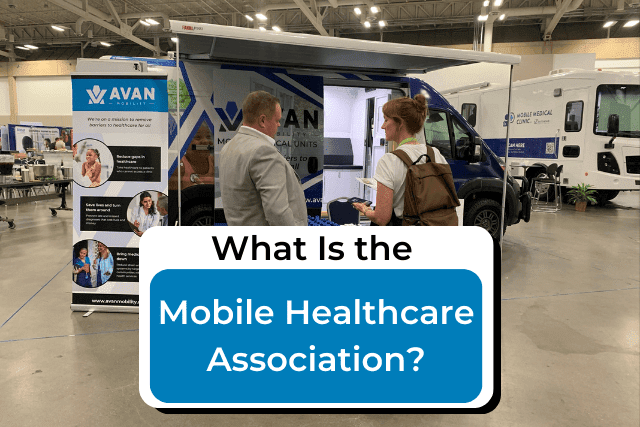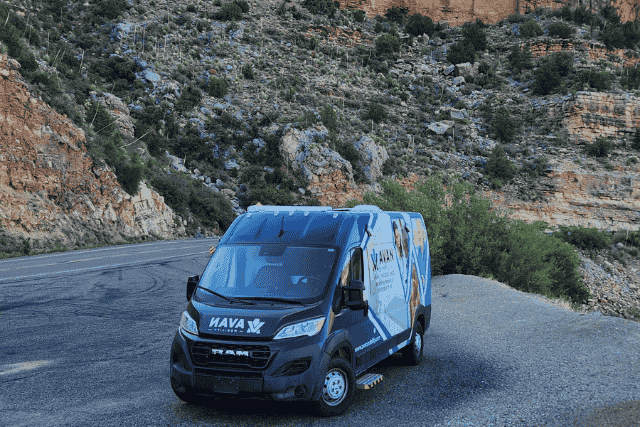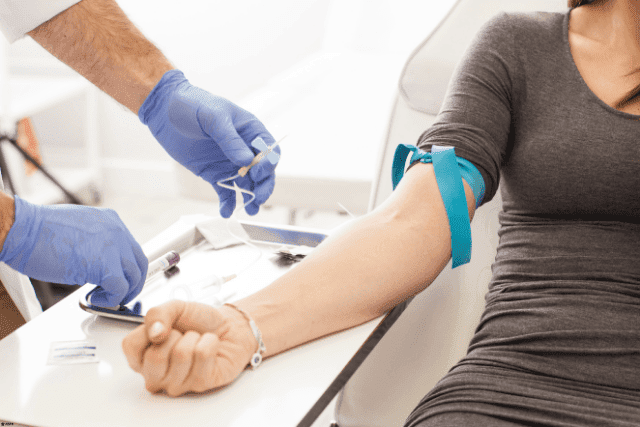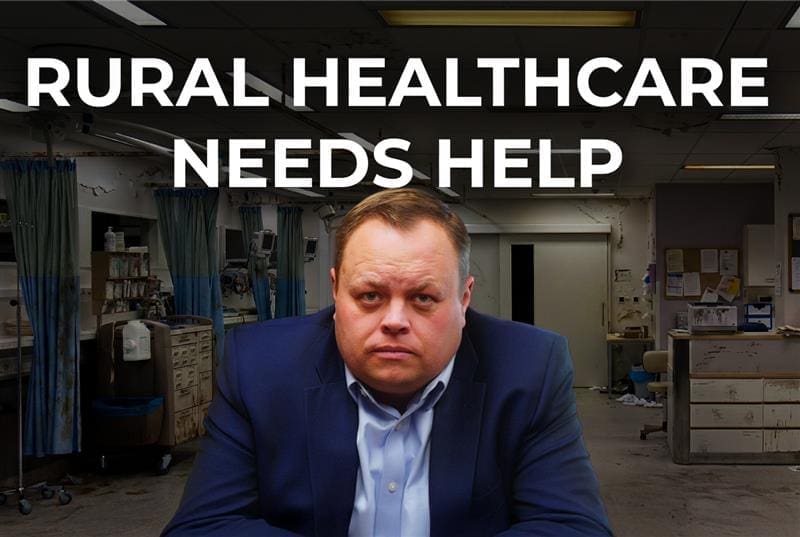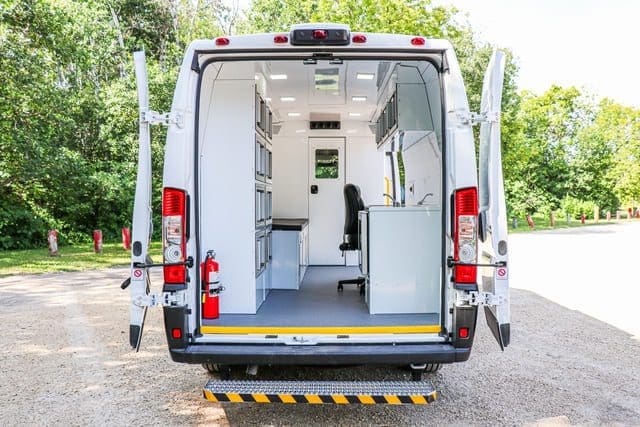Have you ever felt lost trying to figure out how to launch or grow a mobile clinic program? You’re not alone. Many organizations feel stuck at the start. You want to help your community, but you may not know where to begin. You might wonder how to connect with others, where to find trusted resources, or how to build a program that lasts.
If these gaps stay open, you risk slowing down care for the very people counting on you. But when you find the right guidance, everything changes. That’s where the Mobile Healthcare Association can make a difference.
At AVAN Mobility, we know this challenge well. Over the course of 10 years, we’ve built more than 150 mobile medical units across North America. We’ve supported teams like the Community Clinic of Southwest Missouri and Pacific Clinics in reaching people where they are. Our mission is to reduce barriers to healthcare and protect dignity with every vehicle we build. While we’re not the only manufacturer out there, we’ve seen firsthand how the right partnerships help organizations grow stronger.
In this article, you’ll learn what the Mobile Healthcare Association is and how it can guide your next steps.
You’ll discover how their network and resources can help you:
- Connect with mobile health leaders
- Gain access to training and support
- Find funding and policy insights
- Expand your community impact
What exactly is the Mobile Healthcare Association?
The Mobile Healthcare Association (MHA) is kind of like the meeting place for anyone involved in mobile health. Picture it as a big table where healthcare leaders, nonprofits, hospitals, and community groups all sit together to swap ideas. If you’ve ever felt like you’re trying to start or grow a mobile clinic on your own, the MHA is the place that reminds you that you don’t have to figure it out alone.
The goal of the Association is simple: Strengthen mobile healthcare across the country. They do this by creating spaces where members can learn from each other, share best practices, and build relationships that stick around long after a conference ends. When people connect and share resources, programs grow stronger, and communities get better care.
Mission, vision, and purpose of the Mobile Healthcare Association
The MHA keeps things clear with its mission, vision, and purpose:
- Mission: Support the mobile healthcare field so more people can get the care they need.
- Vision: A future where everyone, no matter who they are or where they live, can access quality healthcare.
- Purpose: Give mobile health teams the tools, skills, and knowledge to fight health gaps and create equity.
A focus on equity and belonging
Healthcare in the U.S. isn’t equal. Many people still face barriers like low income, lack of insurance, or living too far from a hospital. The MHA takes these issues seriously with its focus on diversity, equity, inclusion, and belonging.
- Inclusive community: Members come from every specialty, from pediatrics to behavioral health.
- Shared perspectives: Everyone has the chance to learn from real-world successes and setbacks.
- Culture of belonging: Every voice matters, and every community should be represented.
This approach reminds everyone that healthcare is about people first. It’s about trust, dignity, and treating people with respect.
Why is the Mobile Healthcare Association so important?
Mobile clinics fill a huge gap in U.S. healthcare. Right now, about 3,000 mobile health clinics are operating nationwide. Together, they provide over 9 million visits every year. These visits cover everything from mammograms and dental care to mental health and family medicine. Without them, many people would end up in the ER for basic care, which costs more and delays treatment.
Here’s how the MHA helps keep these programs strong:
- Hosting training sessions and conferences
- Building long-term networks so clinics can team up instead of compete
- Advocating for the value of mobile healthcare with policymakers and the public
The Mobile Healthcare Association is about more than vehicles and clinics. It’s about pushing forward a movement that shows mobile healthcare is both powerful and necessary. Lifting up leaders in the field, MHA helps communities across the U.S. gain access to the care they deserve. And if you’re considering a mobile medical clinic, this is where you’ll find support, tools, and a network that can help turn big ideas into real results.
What are the benefits of joining the Mobile Healthcare Association?
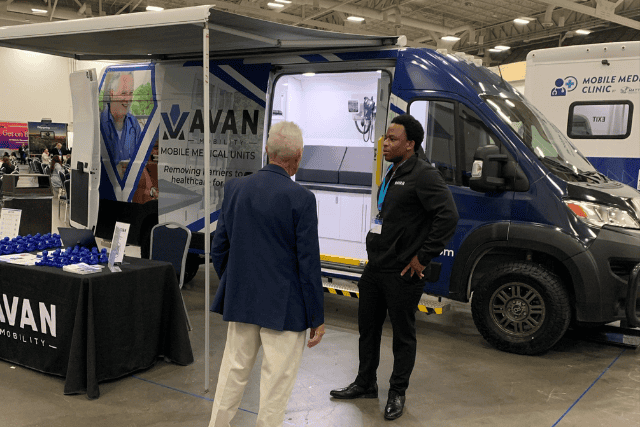
Joining the Mobile Healthcare Association is more than paying for a membership. It’s like plugging into a powerhouse of knowledge, resources, and relationships that can change the way you run your program. At AVAN Mobility, we’ve been members for years, and we’ve seen firsthand how much of a difference it makes. We’ve connected with healthcare leaders across the U.S., learned from others in the field, and even shared our own insights from building over 150 mobile medical units. That’s the kind of ripple effect this network creates: You give and receive, and the whole field strengthens.
Let’s break down some of the biggest benefits you’ll experience as part of the MHA.
1. A library of resources at your fingertips
The first thing you notice as a member is the sheer amount of resources available. No matter what type of mobile clinic you’re planning, dental, behavioral health, primary care, or crisis response, you’ll likely find some sort of guide, toolkit, or case study ready to help.
- Starting out: If you’re new, you’ll find “how-to” guides that cover the basics of program design and operations.
- Already running: If you’ve been doing this for years, you’ll find advanced insights on policy changes, research, and technology trends.
When we talk with organizations across the country, one of the biggest challenges they share is feeling like they’re reinventing the wheel. With the MHA, that’s no longer the case. Someone has already been down your path, and their lessons are waiting for you.
2. Operational and technical guidance you can trust
Running a mobile healthcare program isn’t simple. From compliance rules to staffing to vehicle design, there’s always something new to figure out. The MHA makes this easier by offering clear, practical guidance.
These resources cover:
- Best practices for clinic operations
- New research and case studies from programs in the field
- Examples of what excellence looks like in action
3. Professional growth and networking opportunities
One of the best parts about being in the MHA is the people you meet. Growing your mobile healthcare program is also about personal and professional growth as much as it is about overcoming barriers to healthcare. The Association offers training, workshops, and opportunities to connect with peers who share your same struggles and wins.
- Learn from experts: Get access to leaders in every specialty.
- Grow personally: Build your own skills so you can better lead your team.
- Get inspired: Hear how other programs are creating impact in their communities.
We’ve met countless passionate leaders through the MHA network. Many of them started small, and through mentorship and shared learning, grew into programs serving thousands. That kind of growth happens when you’re surrounded by people who get it.
3. Field data and insights to stay ahead
Mobile healthcare is one of the fastest-growing areas of healthcare in the U.S. To stay ahead, you need facts and data, not guesswork. The MHA provides the latest field information, trends, and industry standards so your program can make decisions backed by evidence.
For example:
- How many mobile clinics are currently operating
- What services are in the highest demand
- Funding and policy updates you need to know about
At AVAN Mobility, we’ve leaned on this kind of data when guiding clients on the best vehicle design for their needs. Having reliable information means you’re not making choices in the dark.
5. Emergency response support
If there’s one thing mobile clinics prove, it’s how adaptable they can be in a crisis. From hurricanes to pandemics, these units are often on the front lines when traditional systems get overwhelmed. The MHA has resources to help programs prepare and train for emergencies before they happen.
This includes:
- Response plans for natural disasters
- Guidance for public health emergencies
- Case studies of mobile clinics in action during crises
These tools make sure that when the unexpected happens, your program is ready to serve.
6. Connections that open doors
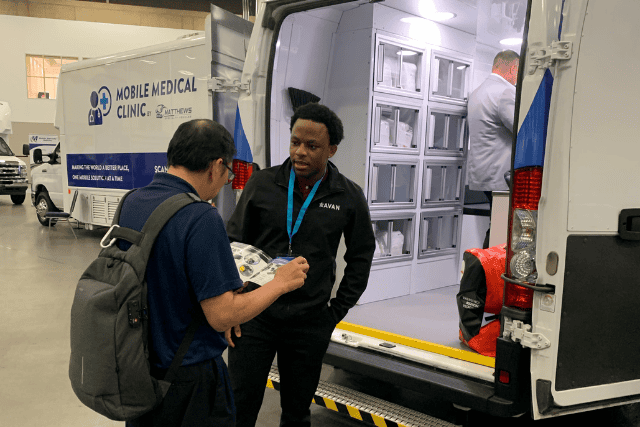
As a member, you get access to a full directory of other mobile health programs across the U.S. This means you’re never more than a phone call or email away from someone who’s been where you are.
And then there’s the annual MHA Conference. It’s one of the best chances to meet face-to-face with leaders, funders, and peers. Many organizations leave with fresh partnerships, new ideas, and sometimes even new prospects interested in their services.
7. Support in finding funding
We know how tough it can be to track down funding that actually fits your program. The MHA helps lighten that load with a dedicated page of funding opportunities across the U.S. Instead of searching alone, you can tap into a collection of grants and opportunities curated for mobile health.
The Mobile Healthcare Association gives you the knowledge, people, and tools you need to build a program that lasts. At AVAN Mobility, we’ve seen the benefits firsthand, and we encourage anyone serious about mobile medical clinics to join. It’s about being part of a community that wants to see mobile healthcare grow and thrive nationwide.
How do you join the Mobile Healthcare Association
Here’s everything you need to know about joining the Mobile Healthcare Association and what to expect once you’re in.
| Type | Who it’s for | Cost / key features |
| Organizational Membership | Clinics, hospitals, health departments, universities, nonprofits, faith-based groups, or any group that provides or plans to provide mobile healthcare. | $345 per year. Everyone on your staff (not just one person) gets access to membership benefits. |
| Corporate Membership | For manufacturers, vendors, suppliers, equipment businesses that support mobile health. | Tiered levels (Bronze, Silver, Gold, Platinum), depending on how much visibility, marketing, or partnership benefits your company wants. Costs vary by level. |
You can join at any time. Here’s how the process works:
1. Go to MHA’s membership page online.
2. Pick “Organizational” or “Corporate” membership depending on what fits your work.
3. Fill out the membership application online. Provide your organization’s details (what you do, where, etc.).
4. Pay the membership dues. For organizational members, that’s the flat $345 fee.
5. Once you’re confirmed, you’ll get login credentials, welcome materials, and access to members-only sections and benefits.
Got any questions about the Mobile Healthcare Association?

When you came to this article, you were likely looking for answers on how to better support your mobile healthcare program and connect with others in the field. Maybe you were searching for resources, funding options, or ways to grow your impact.
After reading, you now know:
- What the Mobile Healthcare Association is all about and how it supports the field.
- The top benefits of joining MHA, like access to resources, networking, funding opportunities, and professional development.
- Why organizations like ours, AVAN Mobility, are proud members, and how being part of MHA strengthens mobile healthcare as a whole.
At AVAN Mobility, we’ve spent years building custom mobile medical vans that help organizations break down barriers to care. Being part of the Mobile Healthcare Association has given us insights and partnerships that help us innovate even further. But beyond the vehicles we design, we share the same mission as MHA, to make healthcare more accessible and equitable for everyone.
That’s why people trust us. We’re partners in making sure your community gets the care it needs. If you’d like to explore how we can help your program, click the button below to talk to a mobility expert.
If you’re not ready to talk to a mobility expert yet, that’s okay.
Here are a few other resources that will help you take the next step:
- 5 types of mobile medical vans: Learn about different van types to see which one best fits your program.
- Top 10 tips on fundraising for a Mobile Clinic Van: Get practical strategies to raise the funds you need for your project.
- How to choose a mobile medical unit: This article will help give you some considerations to think about while choosing your mobile medical unit.
These resources will guide you further down the path of building or growing your mobile healthcare program.
